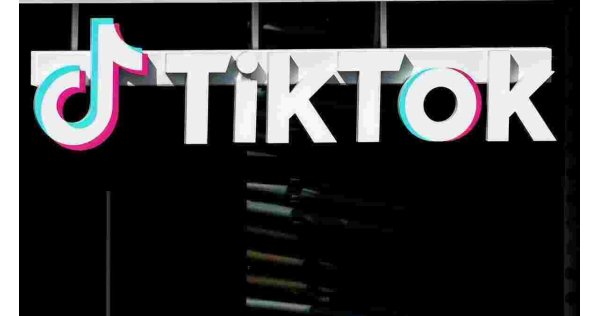Suspected Iranian Cyber Intrusion Targets Trump Campaign, Possibly Stealing Documents
NEW YORK (AP) - Reports surfaced over the weekend detailing a suspected cyber intrusion into the campaign of Republican presidential nominee Donald Trump, potentially leading to the theft of internal campaign documents. The FBI is investigating the matter, as well as similar attempts to infiltrate President Joe Biden's reelection campaign, which transitioned to Vice President Kamala Harris' campaign following Biden's withdrawal from the race.
Trump's campaign confirmed the hack on Saturday, alleging that sensitive internal documents were stolen and disseminated, and blaming Iranian actors. On the same day, Politico revealed receiving leaked internal Trump campaign documents via email from an anonymous source identified only as "Robert." These documents reportedly included vetting materials on Republican vice presidential nominee JD Vance and Senator Marco Rubio, who was also considered a potential running mate.
The New York Times and The Washington Post also received leaked materials, but none of the outlets revealed specific details, instead describing the documents in general terms.
It remains unclear whether the materials received by news outlets are directly linked to the alleged Trump campaign hack. Trump campaign spokesperson Steven Cheung hinted at a connection, stating that the documents were obtained illegally and warning media outlets against reprinting them, claiming they would be "doing the bidding of America's enemies."
The FBI confirmed on Monday that they are investigating the Trump campaign intrusion. Two sources familiar with the investigation revealed that the FBI is also probing attempts to gain access to the Biden-Harris campaign.
While the Trump campaign hasn't provided concrete evidence pinning Iran to the hack, they point to a Microsoft report released on Friday detailing an Iranian attempt to infiltrate a presidential campaign in June. The report alleges that an Iranian military intelligence unit sent a spear-phishing email to a high-ranking campaign official, originating from a compromised email account belonging to a former senior advisor.
Microsoft, while not disclosing the targeted campaign or advisor, confirmed notifying them about the incident. Subsequently, both Trump and longtime friend and advisor Roger Stone have publicly stated that they were contacted by Microsoft regarding suspected cyber intrusions.
Stone's attorney, Grant Smith, confirmed his client's contact with Microsoft and the FBI concerning this matter, stating Stone is cooperating with both organizations. The US State Department spokesperson, Vedant Patel, declined to speculate on Iran's alleged involvement but noted that it aligns with Tehran's historical use of cyberattacks and deception.
US intelligence officials declined to comment on the incident, referring inquiries to the FBI, who only confirmed their ongoing investigation.
Iran's mission to the United Nations, when questioned about the Trump campaign's allegations, denied any involvement, stating they "do not accord any credence to such reports" and that the Iranian government has "neither possesses nor harbors any intent or motive to interfere in the United States presidential election."
However, Iran has long been suspected of orchestrating hacking campaigns targeting adversaries in the Middle East and beyond. Tehran has also threatened retaliation against Trump for the 2020 drone strike that killed prominent Revolutionary Guard General Qassem Soleimani.
The Harris campaign declined to comment on specific state-based intrusion attempts, stating they vigilantly monitor cyber threats and are not aware of any security breaches in their systems. However, two sources familiar with the matter revealed that the Biden-Harris campaign was also targeted in the suspected Iranian cyber intrusion.
At least three staff members in the Biden-Harris campaign were targeted with phishing emails, though investigators have uncovered no evidence of successful intrusion. These attempts occurred before Biden withdrew from the race. The FBI initiated an investigation into this cyber incident in June, with intelligence officials suspecting Iran's involvement.
This suspected foreign hack-and-leak of campaign materials echoes past events, notably the 2016 Russian hack exposing emails to and from Hillary Clinton's campaign manager, John Podesta. The website Wikileaks published these messages, which were extensively reported by news outlets.
Senate Majority Leader Chuck Schumer, acknowledging the repeated use of this tactic against the US, stated that it demonstrates foreign adversaries' intent to "sow chaos and undermine our democratic process."
Experts warn that the recent apparent hack of the Trump campaign is likely not the last attempt to influence the US election, either through cyberattacks or online disinformation. Both Iran and Russia, for example, have targeted Americans with fake news websites and other social media content designed to sway voters, according to Microsoft and US intelligence officials.
Chris Krebs, the nation's former top election security official, issued a stark warning on social media, emphasizing the seriousness of this threat: "You might not like the victim here, but the adversary gives zero Fs who you like or don’t like. American voters decide American elections. Let’s keep it that way."
What we know about the suspected Iranian cyber intrusion into Trump’s campaign
The FBI is investigating the matter as well as attempts to infiltrate President Joe Biden’s reelection campaign, which became Vice President Kamala Harris’ campaign after Biden dropped out.

Related Posts

Denis Villeneuve has been announced as the director for the next James Bond film by Amazon MGM Studios. The acclaimed filmmaker, known for works like "Dune," is excited to bring 007 back to the screen.

TikTok knows its app is harmful to teenagers, lawsuits say

